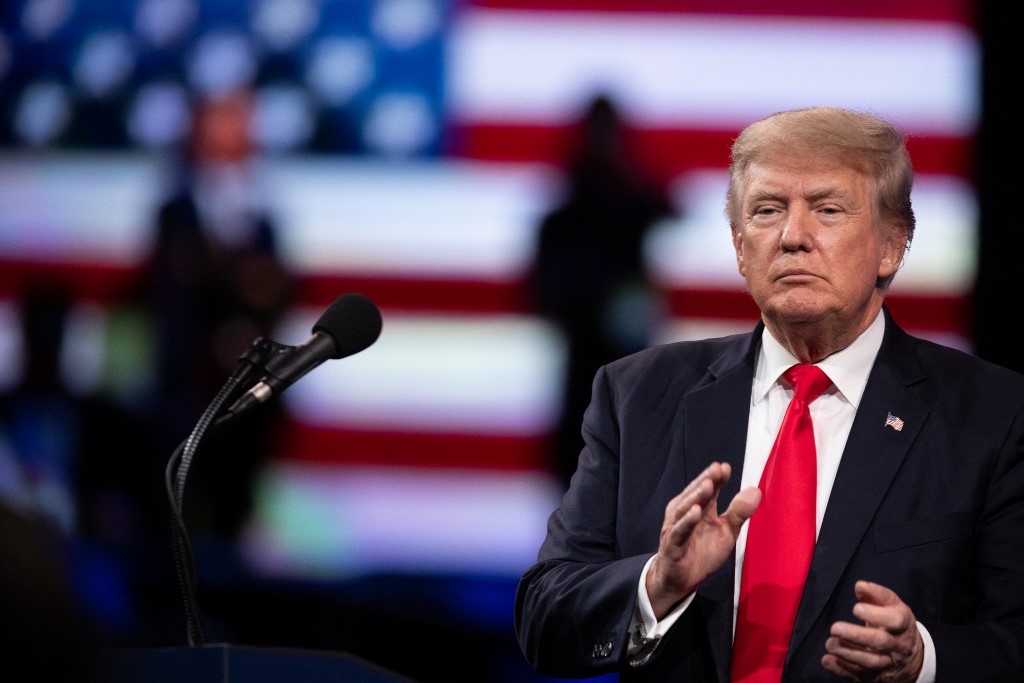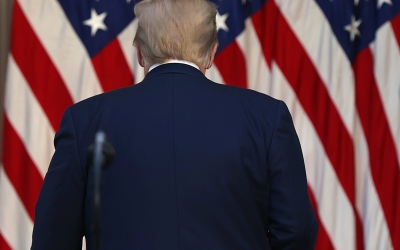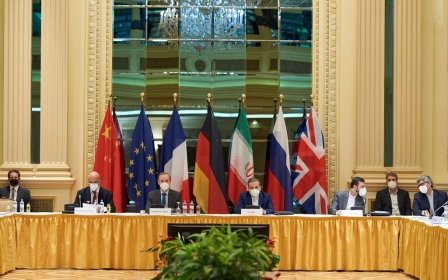Trump brought US 'very close' to war with Iran as hawks urged strikes, general claims

The chairman of the US's most senior military leaders feared that former President Donald Trump would purposely push the US into war with Iran after his election loss, the New Yorker reported on Thursday.
General Mark Milley, US Chairman of the Joint Chiefs of Staff, battled to prevent Trump - who was circled by hawks, including Israeli Prime Minister Benjamin Netanyahu - from ordering a strike against Iran before US President Joe Biden was sworn into office.
'Iran was repeatedly raised in White House meetings with the President, and Milley repeatedly argued against a strike'
- Susan Glasser, The New Yorker
He later told associates that the US had come "very close" to going to war, the New Yorker reported.
Based partially on hundreds of interviews carried out by the New Yorker's Susan Glasser and Times reporter Peter Baker, the report details the inner workings of the Trump White House between November 2020 and January 2021.
"With Trump seemingly willing to do anything to stay in power, the subject of Iran was repeatedly raised in White House meetings with the President, and Milley repeatedly argued against a strike," Glasser wrote.
New MEE newsletter: Jerusalem Dispatch
Sign up to get the latest insights and analysis on Israel-Palestine, alongside Turkey Unpacked and other MEE newsletters
'You’re gonna have a f***ing war'
In the weeks after Biden was elected, Trump "kept pushing for a missile strike in response to various provocations against US interests in the region", the report continues. Milley replied: “If you do this, you’re gonna have a fucking war."
Trump has repeatedly denied reports critical of his presidency, and has accused Milley, a career military officer, of allowing such accounts to circulate "to curry favor with the Radical Left".
But the description of the Trump White House's final months line up with that recently disclosed by the authors - Michael Bender, of the Wall Street Journal and Philip Rucker and Carol Leonnig, of the Washington Post - of two new books about the controversial presidency.
The various reports depict Milley as one of the few people in the upper echelons of Trump's government trying to prevent the use of the US military on both American and Iranian soil.
"Milley, by statute the senior military adviser to the President, was worried that Trump might set in motion a full-scale conflict that was not justified. Trump had a circle of Iran hawks around him and was close with the Israeli Prime Minister, Benjamin Netanyahu, who was also urging the Administration to act against Iran after it was clear that Trump had lost the election," Glasser wrote.
While talks of possible US strikes on Iranian soil started long before the November 2020 elections, in the months after Trump's loss Milley reportedly believed that Trump seemed to be "willing to do anything to stay in power", including starting a war or sparking a US coup, Glasser wrote.
"The subject of Iran was repeatedly raised in White House meetings with the President, and Milley repeatedly argued against a strike. Trump did not want a war, the chairman believed, but he kept pushing for a missile strike in response to various provocations against US interests in the region," the report continues.
'They are evil'
Along with Israeli Prime Minister Netanyahu, who approved a list of Iranian targets that was passed along to the US earlier in 2020, then Vice President Mike Pence and Secretary of State Mike Pompeo were two other ardent supporters of military actions against Iran, reports show.
According to the New Yorker, Milley said that when he asked why they were so intent on attacking Iran, Pence, a conservative Christian, replied, "because they are evil".
There were only weeks left of the Trump presidency when Milley said he finally felt assured that an attack against Iran would not be ordered.
According to reports, on 3 January, National Security Adviser Robert O'Brien and Secretary of State Pompeo both told the president they were against a military strike.
During that meeting at the White House, the two both told the president that "it was not possible to do anything militarily at that point", according to the New Yorker report.
"Their attitude was that it was 'too late to hit them.' After Milley walked through the potential costs and consequences, Trump agreed. And that was that: after months of anxiety and uncertainty, the Iran fight was over."
Middle East Eye delivers independent and unrivalled coverage and analysis of the Middle East, North Africa and beyond. To learn more about republishing this content and the associated fees, please fill out this form. More about MEE can be found here.





